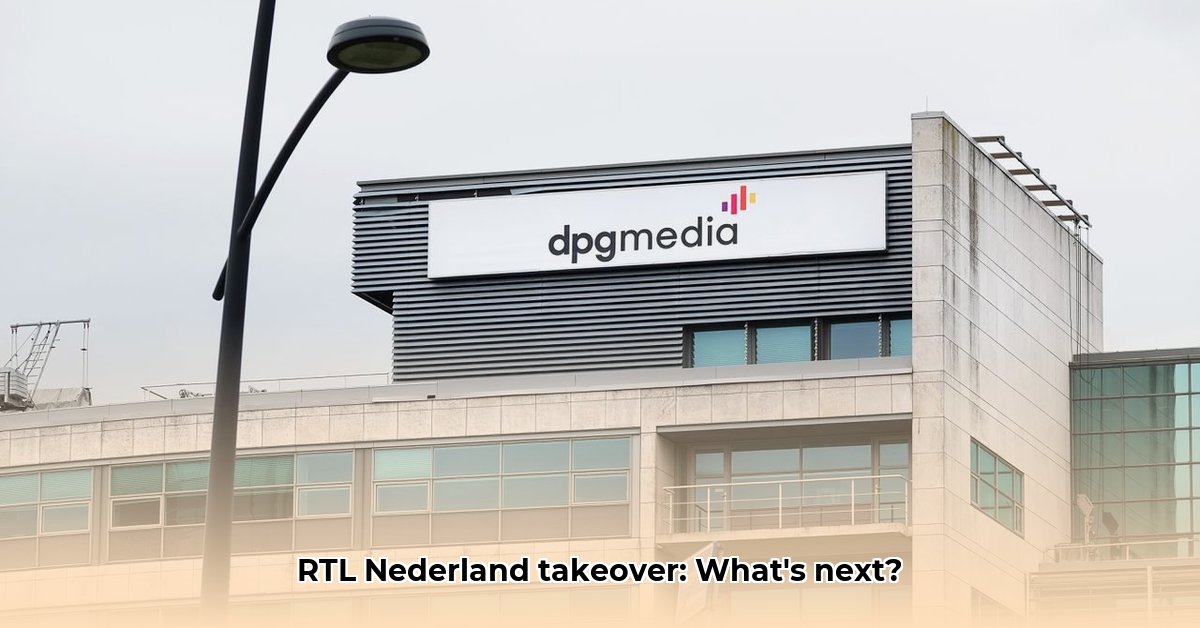
The €1.1 Billion Deal: A Media Landscape Reshaped
DPG Media's acquisition of RTL Nederland for €1.1 billion marks a pivotal moment in the Dutch media landscape. This wasn't merely a financial transaction; it ignited intense regulatory scrutiny and raises significant questions about media plurality (the presence of diverse voices in the media). This analysis examines the deal's intricacies, regulatory hurdles, and potential long-term implications.
The Deal: Strategic Acquisition, Synergistic Gains
DPG Media, already a dominant force, strategically acquired RTL Nederland to bolster its position in the digital streaming realm, particularly strengthening its Videoland platform. Combining RTL's extensive viewership with DPG's existing assets promises significant advertising and operational synergies – more viewers translate to increased advertising revenue. For RTL Group, the sale likely represented a streamlining of international operations, freeing resources for other ventures. This wasn't just about financial gain; it was a calculated adaptation to the digital media revolution. But how will this reshape the media landscape?
Regulatory Scrutiny: The ACM's Crucial Role
The Autoriteit Consument & Markt (ACM), the Dutch consumer and market authority, played a critical role, expressing deep concerns about media plurality. The ACM worried that DPG Media's increased market dominance could stifle competition and potentially compromise journalistic independence. This resulted in extended investigations and negotiations, delaying the acquisition's finalisation. The ACM's concern stemmed from the potential for reduced diversity of voices and opinions, leading to a less informed public discourse. Isn't the free flow of information vital for a healthy democracy?
Conditions Imposed: Striking a Balance
To secure ACM approval, DPG Media agreed to stringent conditions aimed at preserving media plurality and editorial independence. These weren't mere recommendations; they were legally binding commitments extended indefinitely from an initial 10-year term, underlining the significance of the ACM's concerns. These conditions aim to ensure a fair and unbiased media landscape. How effectively these conditions will be implemented and enforced remains pivotal.
Impact Analysis: Short-Term and Long-Term Effects
The acquisition impacts various stakeholders, both immediately and in the long term:
| Stakeholder | Short-Term Impact | Long-Term Impact |
|---|---|---|
| DPG Media | Increased market share; immediate access to RTL Nederland's assets. | Potential for significant market dominance; success hinges on Videoland's growth and integration strategy. |
| RTL Nederland Employees | Uncertainty surrounding restructuring and potential job losses; initial morale concerns. | Long-term job security depends on DPG Media's integration strategies and the merger's overall success. |
| Dutch Consumers | Minimal immediate viewing changes; potential future alterations to channel offerings. | Potential impact on media diversity and content; changes in pricing or advertising might occur. |
| Competitors | Increased competitive pressure; need for strategic adaptation and innovation. | The long-term impact on competition will be carefully monitored and might trigger further regulatory interventions. |
Future Outlook: Navigating a Changing Media Landscape
The DPG Media takeover represents a turning point for Dutch media, highlighting the challenges faced by traditional media in the digital age. The merger's long-term success depends on several factors, including the effective integration of RTL Nederland's assets, the growth of Videoland, and the effective implementation of the ACM's conditions for media plurality. The next few years will be critical to assess the long-term consequences at play.
Risk Assessment: Potential Challenges Ahead
Several key risks could affect the merger's success:
- Loss of Media Plurality: (Medium Probability, High Impact) Mitigation involves strict adherence to ACM conditions and independent audits of DPG Media’s editorial practices.
- Integration Challenges: (High Probability, Medium Impact) Thorough planning, clear communication, and sensitive integration strategies are crucial.
- Antitrust Legal Challenges: (Low Probability, Very High Impact) Proactive compliance and transparency with regulators are essential to mitigate.
- Videoland's Growth: (High Probability, Medium Impact) Acquiring compelling content and implementing targeted marketing strategies are vital for success.
The DPG Media-RTL Nederland merger's long-term effects on the Dutch media landscape require ongoing evaluation. The success of the merger will substantially determine the future of media diversity in the Netherlands. The effectiveness of the ACM's regulatory measures will be essential to determining the future media landscape.